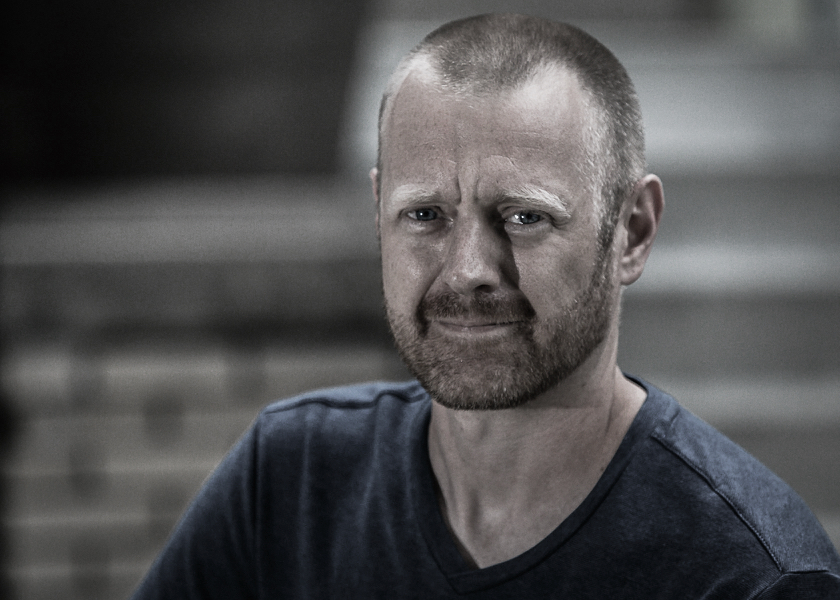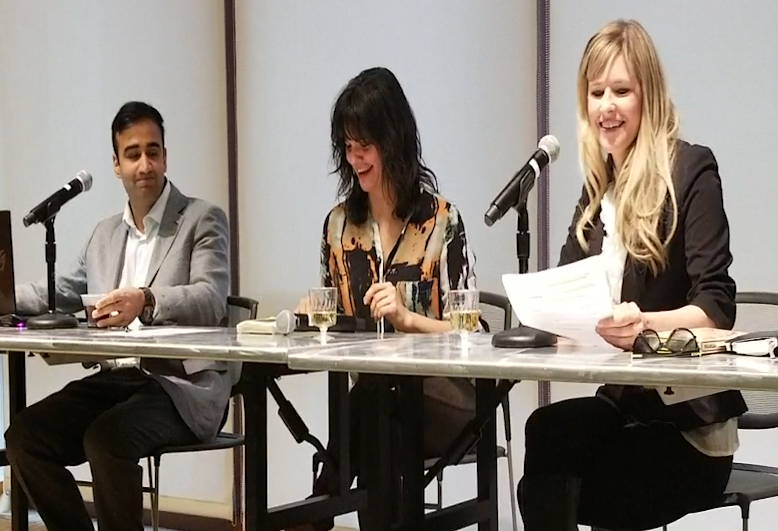You’d think ‘bur’ would have two r’s, the hooks on the letter resembling those on the prickles. Our dogs do not love the cocklebur’s almond-sized fruit, especially Fern, whose fur is the consistency of bad wig hair. The burs cling to Fern like Velcro, using her beard, her tail, her fuzzy pantaloons to disperse to new locations, determined to survive. A member of the daisy family, the cocklebur grows in waste places, places to which its prickly seeds can be blown or washed in, places like the lakebed trails where my husband Marc and I walk our dogs several times a week. As the Kern River and Lake Isabella’s waters recede with the Sierra’s diminishing snowmelt, bottles and driftwood and sunglass frames deposit themselves on the freshly formed beaches. Cocklebur plants, too.
And shoes. Hundreds of them. Once, when we were hiking with the dogs, we happened upon a pile of 50 or so mismatched sandals at the high-water mark. Yet the pile in front of us was not the shoes’ natural rest stop. Someone had curated this collection, matching like sandal to sandal, neoprene moccasin to neoprene moccasin, flip-flop to flip-flop. In bringing them together in a space the length and width of a swimming pool, rather than leaving them scattered and stranded, this curator had created art, both beautiful and horrible. And as with any piece of art, this heap of summer footwear incited questions. What happened to the people on whose feet these sandals belonged? Were the sandal-bearers pulled from the overflowing river by their loved ones, only to realize they’d lost a shoe? Better to sacrifice a shoe to the frigid floodwaters than a person. My photo series of the high-water shoe-pile: I call it “The saga of flip-flops.” Imagine if, like cockleburs, the shoes took root and flourished.
Any farmer with burs in his pasture will tell you, though the seedlings are tenacious, the roots are not difficult to pull. Get them when they’re young.
Twenty years ago, Marc and I rendezvoused in campgrounds on this river. I’d coast in from L.A., where I worked in a magazine office, while he meandered south from the Eastern Sierra, where he worked as a backcountry guide. We’d cook one-pot noodle dinners over a Primus camp stove, share a bottle of wine, and recount our Saturday whitewater kayaking the Kern’s rapids. An hour after the sunset, the campground boulders still retained their heat. Cloaked by darkness, we’d shed every stitch of clothing. Lolling in the rock’s ambient heat, each on our own individual boulder, we’d talk about everything, and nothing. Then one warmed body would cross over to share the other’s boulder, and conversation hushed. Back then, I was in over my head when it came to whitewater rapids. Time after time, I would emerge for air after flipping, failing to Eskimo roll, and slithering out of my boat. I’m swimming again, damn it, I thought, while water flowed literally over my head. I worried I might be in over my head with Marc, that we were just playing at romance, enchanted by the river’s rapids and pools, by the mountains’ granite, and by the impossible array of stars above us, but I was wrong about that. Despite our youth, the seedlings of our relationship weren’t drowned. All these years later, here we are. We’ve traded tents and camp stoves for a house and a five-burner range. We floated in and we’ve taken root.
Strolling in the sandy soil of the lakebed, we spot all manner of tracks—from pickup trucks, birds, boots, tennis shoes, dogs. Eventually we’ll even recognize our own footprints. “Huh,” we’ll say. “So those are the patterns we make.”
On one particular hike, a blur of corgi-terrier sprays my ankles with sand. I follow Keji through a screen of willowy shrubs to the river, where something unnaturally white contrasts with the dark blue meandering water. An ancient washing machine’s four rusting claw feet dig into the bank. The washtub is white—super white—thanks to the sun. It’s a top-loading machine, lid long-gone. The wash basin has a flat bottom, maybe a 2-foot radius. A finned pillar rises from smack-center of the basin—the agitator. Later I will look this word up and I will confirm that an agitator is a device to stir or shake things up. People can be agitators, as can geological faults. This will strike me as a funny coincidence since the 65-year-old earthen Isabella dams—known as Main Dam and Auxiliary Dam—are in the process of being rebuilt. The active Kern Canyon fault beneath the dams threatens to agitate the earthen structures to the point of catastrophic failure.
Meanwhile, beneath the sun-bleached washbasin, a brown, cloth-wrapped electrical cord snakes around its rusty feet, which support a corroded base in which a motor once rumbled. I imagine the machine once rumbled on someone’s back porch, under an eave. Or perhaps in a corner of a ranch house kitchen. But why is it here, a half mile or more through sand and shrub from town? Why isn’t this aged contraption convalescing with other rusting, rustic devices in one of the many local antique shops? I imagine the claw-footed old-timer sandwiched between record player console and telephone table, a quiver of catgut tennis rackets propped in a corner, near a pair of wooden skis partnered with poles, their snowflake-shaped baskets big as diner pancakes. Nostalgia is one of the Kern River Valley’s most lucrative industries.
More likely, the elderly beast drowned, bound by sand for decades. This section of riverbank is normally submerged by the dammed waters. Isabella’s earthworks were under construction from 1950 to 1953, while the washing machine itself was manufactured in the 40s. This was right around the time the federal government condemned Old Kernville and the town of Isabella in order to build the dam and reservoir. But the local townsfolk didn’t quietly away. Instead, they moved 120 of the old houses and buildings to new sites, such as the vacant land that would become today’s Kernville. What they couldn’t move, they dynamited. Foundations, ruins, and oddities such as this flood-battered washing machine become exposed and then vanish at the whim of the lake level.
Marc and I live on a lot where an Old Kernville house had been relocated. Around 2001, the relocated building was razed but for one wall, the wall containing the fireplace. Over that hearth, on the rebricked mantel, we’ve lined up framed photos. In them, we’re hiking, we’re camping, we’re canoeing. It’s funny, but all the photos cut us off at the feet. You can’t see whether we’re shod or barefoot or wearing mismatched flip-flops. You can see that we’re happy, though, that we’re flourishing in this place. Years before we bought the property, I remember walking past it on the way to the Kernville Post Office. The old green shanty with its screened-in porch listed slightly, weighed askew by time and gravity. The new house—our salmon-hued stucco job—will someday do the same. And a river shall take it, not unlike a cocklebur.
Image at the top of the page: “Cockleburs” by CAJC: in the PNW is licensed under CC BY-SA 2.0.





